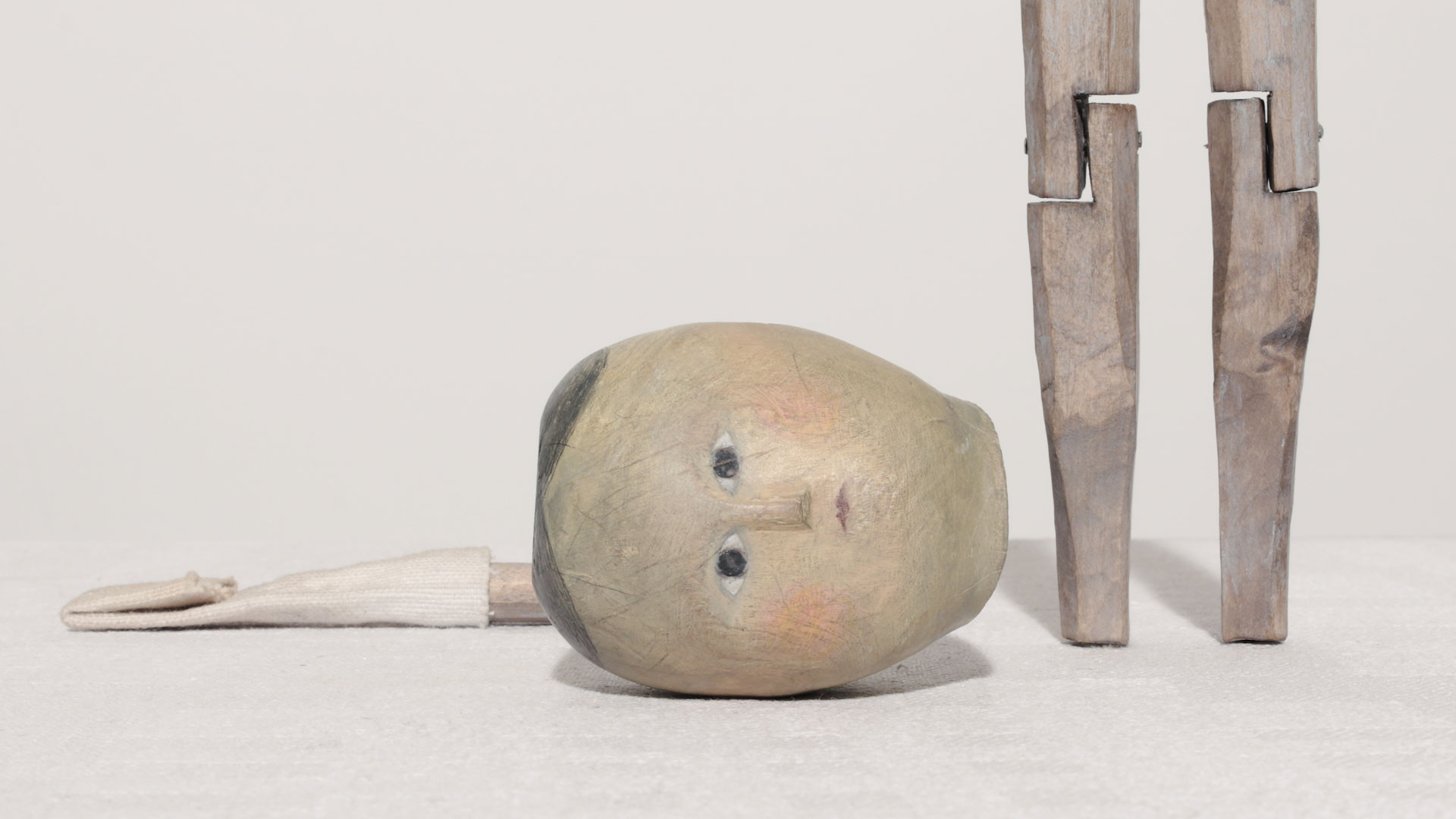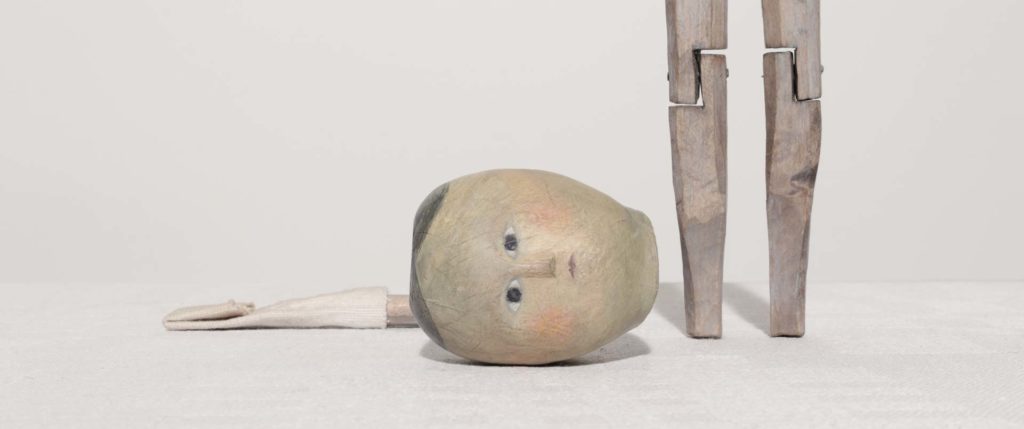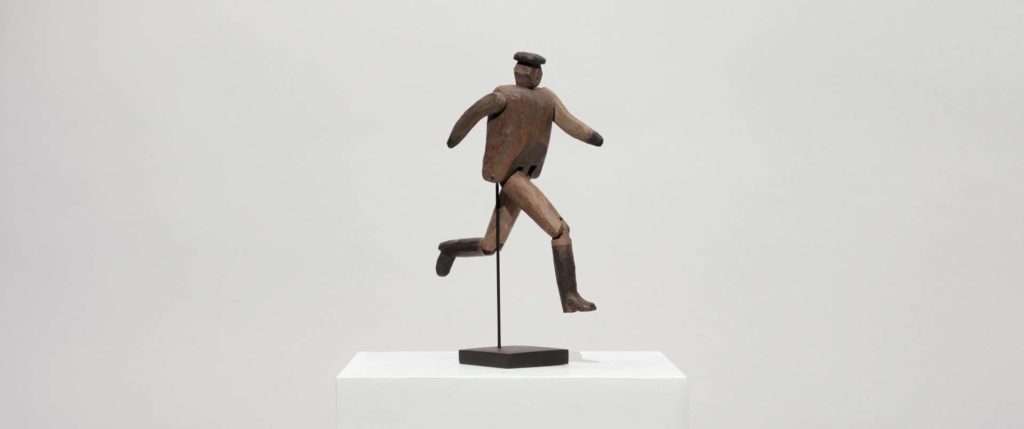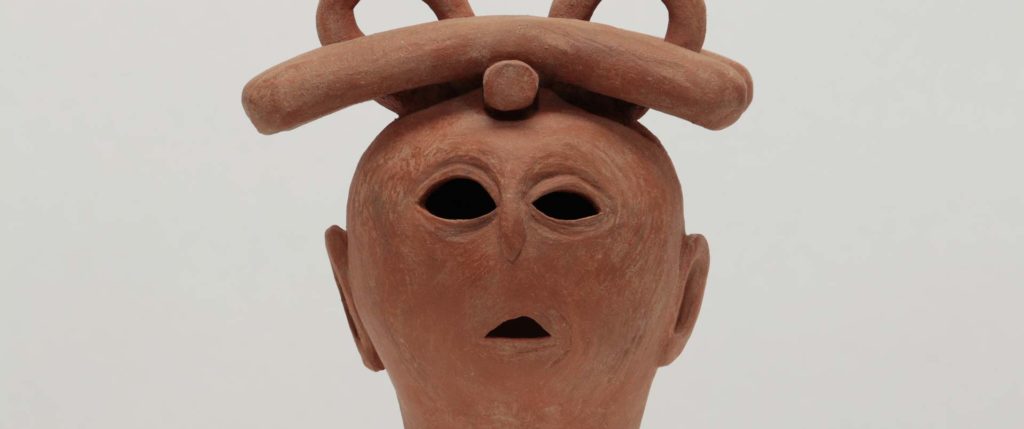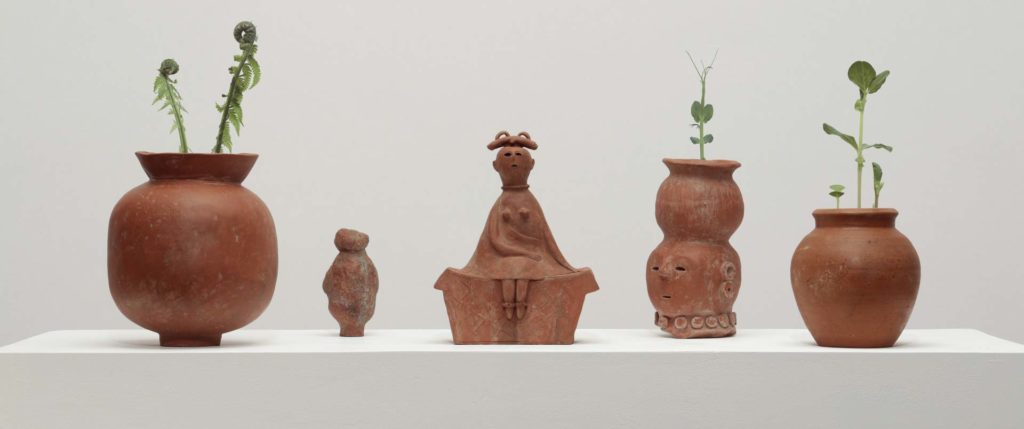We have been constantly on the move and in a hurry in recent decades, yet paradoxically we have never been as sedentary as today. We have sat at work and we have travelled sitting in a car, train or airplane, and even at the gym we are used to stay in one place in some exercise machine. Elli Vuorinen’s stop motion animation Still Lives (2019) explores such busy stillness by making museum artefacts adapt to modern challenges.
The couple on an antique wooden bridal box splinter into tinder, an ancient statue in a glass display case is fed up listening to the advantages of an open plan office. The runner on a clay pot is unable to stop (Just do it!). Traditional ethnographic objects and folk art figures from all over the world build up into an imaginary culture and identity that everyone anywhere can identify with. The superficial modern life problems on the soundtrack echo timeless feelings of longing, loneliness, sense of insufficiency, fear of ageing.
Still Lives was produced in collaboration with the Finnish National Museum. Some of the featured objects belong to the museum’s ethnographic collection, some are constructed by the artist herself. The animation has toured over 50 film and art festivals and won several prizes, including the grand prize at Fredrikstad Animation Festival, the largest animation festival of the Nordic region.
Elli Vuorinen (b. 1985) is an animation artist who lives and works on her farm in Piikkiö, Finland. Her works often balance between the surreal, the delightful and the uncanny. Although Vuorinen’s animations often contain a humorous streak, they explore sombre themes such as melancholia, loneliness and hope. Vuorinen graduated as animation director from the Turku Arts Academy in 2011. Her media include large-size puppet animations, drawn animations and installations. Her previous six films have been screened in dozens of international festivals and they have won numerous awards.
This exhibition is supported by the Finnish Ministry of Education and Culture and Arts Promotion Centre Finland. Sound design is by Jani Lehto. A cinema version of the video has been produced by Pyjama Films with support from the Promotion Centre for Audiovisual Culture, the Finnish Film Foundation and Arts Promotion Centre Finland.


